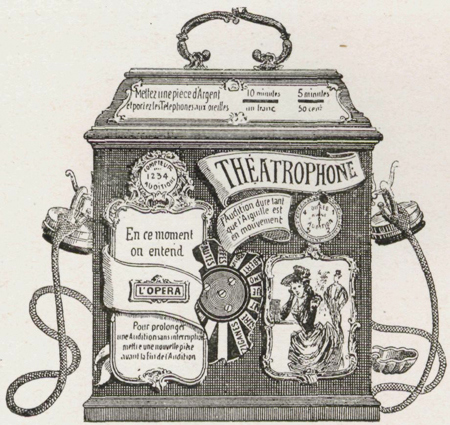Ad-supported content just isn’t feasible for most media companies in the Digital Age. From an article about the current rise of content subscriptions by Dan Burkhart at All Things D, a passage about the Théâtrophone, which had much in common with the Telephone Herald:
“More than a century before Netflix and Hulu and Spotify first charged subscribers to satisfy their daily media cravings, another device existed called the Théâtrophone. From 1881 to 1932, telephonic devices called Théâtrophones were made available to dignitaries and guests in luxury hotels who required their daily fix of live opera performances via subscription fee — 50 centimes for five minutes.
While the Théâtrophone was an impressive invention in its day, the subscription model itself has a prolific and fascinating history of enabling innovation throughout the world. Subscriptions have helped companies pioneer new distribution models across a diverse set of business applications; all in the name of seeking efficient annuity revenue streams that outweigh the cost of production and distribution. From an end-customer ‘subscriber’ perspective, the convenience of easy access or repeat consumption can greatly outweigh the incremental cost of subscribing.
Subscriptions have historically also found ways to take on greater social meaning through the signaling of a certain status by way of access to a secret society, social club or charitable organization.”

